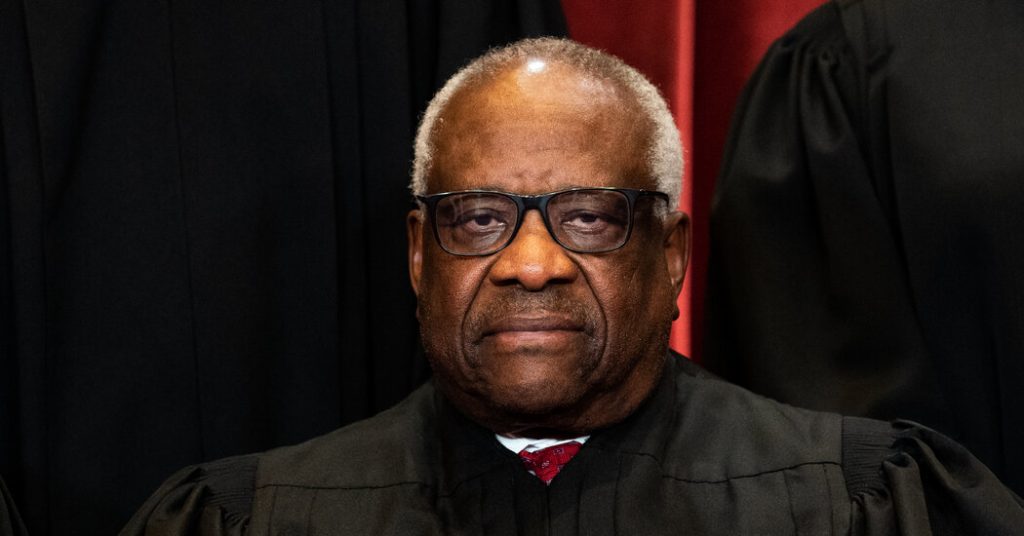Justice Clarence Thomas recently hired Crystal Clanton, a former conservative organizer turned lawyer, to be one of his Supreme Court clerks for the 2024 October term. Clanton, who had previously been embroiled in controversy over racist text messages, was accused of sending messages that included derogatory remarks about black people, although she has denied sending them. The Thomases, who have developed a close relationship with Clanton, have informally referred to her as their “nearly adopted daughter.” Clanton has lived in the Thomas home, worked in Mrs. Thomas’s political consulting business, and went on a trip to New York with them.
Despite accusations of favoritism and nepotism due to their close relationship, Justice Thomas’s decision to hire Clanton as a clerk reflects his preference for clerks who have overcome adversity. Raised by her grandparents in Gurnee, Illinois, Clanton became involved in conservative activism during college, joining Turning Point USA, where she rose to prominence before departing amid controversy over the racist text messages. Justice Thomas, who has faced his own share of scrutiny, took Clanton in after the incident, and she worked for Mrs. Thomas’s political firm before enrolling in Scalia Law School, where Justice Thomas has taught.
Clanton’s path to a Supreme Court clerkship included working for Judge Corey L. Maze and Judge William H. Pryor Jr., chief judge of the United States Court of Appeals for the 11th Circuit. Despite concerns raised by Democratic lawmakers about her past behavior and the hiring decisions of the judges who took her on, investigations ultimately found no evidence of misconduct and deemed the hiring decisions to be appropriate. Clanton, who received a full merit scholarship to law school and excelled academically, will join Justice Thomas and three other clerks for his upcoming term on the court.
Ethics experts note that while there is nothing in the Supreme Court’s ethics code prohibiting a justice from hiring someone accused of racism or a close family friend, judges are advised to avoid favoritism and make appointments based on merit. Some court watchers see Justice Thomas’s decision to hire Clanton as problematic, given the close relationship between the two and the controversy surrounding her past behavior. Others argue that the justice’s willingness to give Clanton a second chance reflects his personal values and commitment to supporting young conservatives facing backlash from the liberal elite.
Clanton’s background, which includes growing up in a middle-class suburb of Chicago and getting involved in conservative activism due to concerns about President Barack Obama’s policies, has played a role in her journey to becoming a Supreme Court clerk. Despite the challenges she faced, including the controversy over the racist text messages and the subsequent fallout, Clanton has persevered and landed a coveted position working for Justice Thomas. Her redemption story highlights the justice’s willingness to look beyond an individual’s past mistakes and offer a path to success based on personal merit and resilience.
While questions linger about the propriety of Justice Thomas’s decision to hire Clanton, his choice reflects his support for young conservatives and his belief in giving individuals a second chance. By recruiting clerk candidates who have overcome adversity, Justice Thomas is staying true to his belief in the potential of individuals who have faced challenges in their lives. As Clanton prepares to join the Supreme Court as a clerk, her journey from controversy to redemption serves as a testament to the complexities of personal growth and the values of forgiveness and resilience in the face of adversity.













